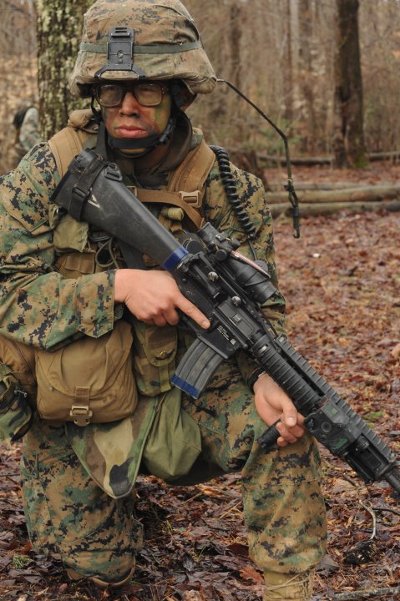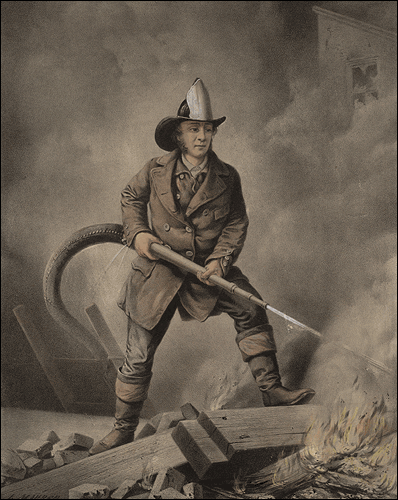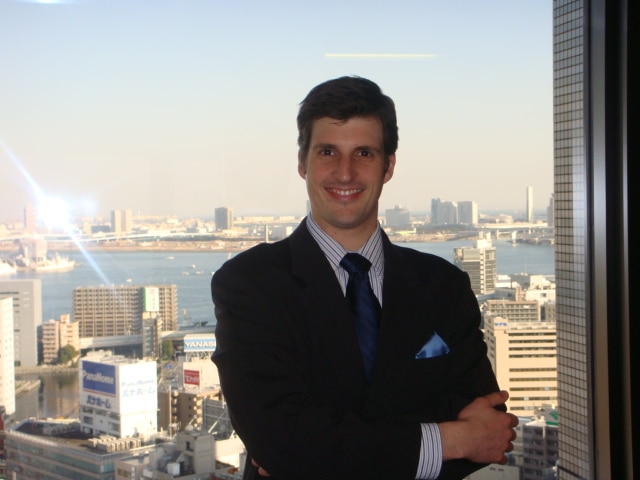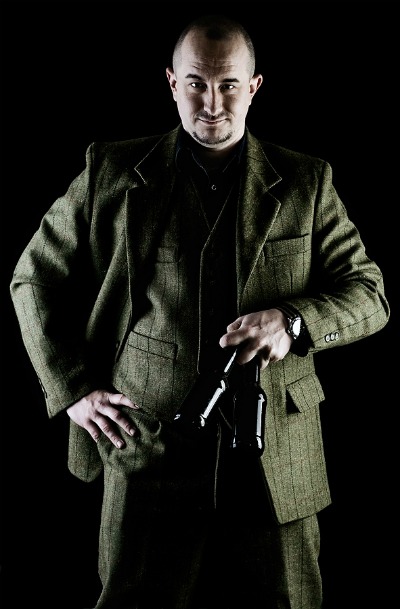Once again we return to our So You Want My Job series, in which we interview men who are employed in desirable jobs and ask them about the reality of their work and for advice on how men can live their dream.
Today we feature a different sort of job; it’s not something you can do as a career. Rather, it’s a two year service experience that you may decide to undertake at any time in your life. Closing in on the 50th anniversary of its founding, the Peace Corps is a program started by President Kennedy which sends American citizens all over the world to work on development projects and promote mutual understanding. If you’ve been looking for some way to give back to the world, need an idea for how to spend your gap year, or are looking for a satisfying adventure, the Peace Corps is definitely worth checking out.
Travis Hellstrom is currently serving in Mongolia as a Peace Corps volunteer and is the author of The Unofficial Peace Corps Volunteer Handbook.
1. Tell us a little about yourself (Where are you from? How old are you? Describe your job and how long you’ve been at it, etc).
My name is Travis, I am 24 years old and just graduated from Campbell University in North Carolina with a Pre-Med/Biology degree. Right now I am in Mongolia serving as a Peace Corps Volunteer working in the health administration department of my provincial hospital. I have been here for one year and will be here for another year, until August of 2010. I work on health projects within the hospital and projects in the community as well. On any given day I might be teaching life skills lessons to Mongolian Scouts, teaching English to doctors and nurses, filling out grants for development projects, or playing sports with local children and friends. Every day is different, and Peace Corps allows every Volunteer the opportunity to create their own job, define their own objectives and enjoy their own experience. It’s a great adventure and I feel very lucky to be able to be here.
2. Why did you want to become a Peace Corps Volunteer?
I have always believed in service and helping others as much as I can. I think many Americans feel this way, and Peace Corps is an outward expression of this international friendship and service. The more I looked into the organization and met former and current Volunteers, the more I felt like it was something I was meant to do.
3. When do most people serve as a Peace Corps Volunteer? Is there any age limit?
In Mongolia we have PCVs in their early twenties all the way to their late sixties, and right now the oldest Volunteer in Peace Corps is 84 years old. The average Volunteer is 27 years old, but Peace Corps prides itself on having no average Volunteers. This is evident all the way back to Peace Corps’ first years in 1966 when Lillian Carter, the mother of future President Jimmy Carter, served as an outstanding Peace Corps Volunteer in India at the age of 68. Everyone brings their own unique life and experience to Peace Corps. My mom is actually planning to join Peace Corps herself in a few years, and I am really excited for her. I think it will be one of the most enjoyable experiences of her life.
4. How competitive is it to get a position as a Peace Corps Volunteer? What is the application process like?
Applications for Peace Corps are at an all-time high and the Congress is currently considering one of the largest budgets in Peace Corps’ history. With our new President’s emphasis on national service, this is a great time to apply to serve in the Peace Corps. Although it is competitive, qualified candidates should always apply. Peace Corps accepts as many Volunteers as it can and is always trying to expand to meet the ever increasing demand of countries interested in having Volunteers.
The application involves sharing your past service and work experiences, writing personal essays and going through a medical and background clearance. While it can seem a little daunting at first, it’s not so bad and gives an applicant a lot of time to reflect on their life and why they believe they would make a good Volunteer. Be yourself, be patient and be flexible. That goes for the application process as well as Peace Corps service.
5. When applying for the Peace Corps, what sets an applicant apart from others? What is the government looking for in a prospective candidate?
Demonstrating your ability to be a “self-starter” is a huge plus in a Peace Corps application. This is someone who is self-motivated, self-directed and can encourage and lead others to accomplish projects. Peace Corps is about finding out what the needs of a community are (based on what the community thinks) and then helping community members find solutions to those challenges. Peace Corps wants Volunteers who can help people help themselves, and that requires flexibility, understanding and compassion. Showing examples of leadership and project management, as well as a commitment to helping others, are great ways to show that you will make a great Volunteer.
6. Can you choose where in the world you are assigned to do your service or are you placed somewhere?
In the application process Peace Corps asks where and in what job you would like to serve and then they try their best to match you with the needs of prospective countries. Once they have done that, they send you an invitation to serve as a Volunteer, which you can either accept or decline. Flexibility and open-mindedness are very important throughout the whole process of being placed in a country. It seems to me that the happiest Peace Corps Volunteers are the ones that decide to be happy.
7. What kind of work do Peace Corp Volunteers do? Can you choose what kind of work you want to do?
All Peace Corps Volunteers have three goals:
- Helping the people of interested countries in meeting their need for trained men and women.
- Helping promote a better understanding of Americans on the part of the peoples served.
- Helping promote a better understanding of other peoples on the part of Americans.
To achieve these goals, Volunteers work in all kinds of areas, including Education, Health, Business, Environment, Youth Development and Agriculture. In the application process you can highlight which areas you are most interested in working and Peace Corps tries to place you where you are most needed. However, and we were told this during training, all Peace Corps Volunteers are Community Development Volunteers. This means that we are constantly working on projects and opportunities to help our communities improve their quality of life, no matter what sector that might fall into. That is one of my favorite parts of the job; I work in the hospital as a Health Volunteer, but I also work with the Mongolian Scouting Association, teaching life skills in the local high schools and pursue projects that the community wants. It’s a very dynamic job and ultimately what you do is up to you as a Volunteer.
8. What would you say to a man who is thinking about the Peace Corps but finds the two year commitment rather daunting?
I understand; it seemed daunting to me too at first. But then I thought back to other things I have done, like college, which seemed like a long commitment until I was graduating and thinking, “Wow, that was fast.”
The first year of Peace Corps is usually an acclimation year, in which you are likely learning a brand new language, getting accustomed to a new culture, and making new relationships with your friends, co-workers and community members. Having been here a year I can say absolutely that if I only had one year here it would be really challenging for me to do the kind of work the community needs me to do. Having a second year allows me the time to complete projects with all of the people with who I have been forming relationships for this past year.
Also, maybe most importantly, Peace Corps is an absolutely incredible experience. Once you get in you will be amazed at how fun and fast two years will be. You will probably be like a lot of Volunteers and want to stay a third year, which is definitely how I feel.
9. Are you given any kind of living stipend or education grant for your service?
All Peace Corps Volunteers are given a monthly living allowance, enough to live at the different economic levels of their community neighbors. This amount varies from country to country and city to city. Also all PCVs earn a Readjustment Allowance which right now amounts to $6075 over 27 months of service.
10. What is the best part of your job?
The thing I have appreciated most about Peace Corps has been the time and space it has given me to become the kind of person I want to be. I’ve been able to reflect on my values, who and what matters most in my life and then rededicate myself to those things. In Peace Corps I have a chance to get the small things right: talking to and playing with children, being fit and healthy, being kind and helpful, and setting a good example. I feel like being a kind and good person is not only achievable, it’s probably the most important thing I will ever do.
11. What is the worst part of your job?
At first it was not having peanut butter. Haha. But I got over that eventually.
I think the hardest thing about Peace Corps is the freedom we are given as Volunteers. We are able to define our own jobs and this can be really challenging. If you get bored, you realize that it’s all on you. You can make your experience in Peace Corps everything you want it to be; you just have to decide what that is. “Things do not happen,” as Kennedy said, “Things are made to happen.”
12. What is the biggest misconception people have about the Peace Corps?
Maybe that there is a “typical” Peace Corps experience. Every single Volunteer in every country has their own extremely unique experience. For instance, I am lucky enough to serve near a wonderful Volunteer named Alex; we trained in the summer together, are here in the same city for two years, and even live 5 minutes from each other, but we experience completely different Peace Corps lives. She lives in her own ger (traditional Mongolian felt tent) with a nearby family, and I live in an apartment. She collects water; I turn on a sink. I have a bathroom; she has an outhouse. And on and on.
The only thing “typical” about Peace Corps is that if you come into your service with an open mind, an adventurous spirit and an appreciation for life, you will be guaranteed to have your own unique experience. But that might apply outside of Peace Corps too actually.
13. Any other advice, tips, or anecdotes you’d like to share?
One of the coolest responses I ever received from someone when I told them I was going into the Peace Corps was from my teacher, a retired Dean at Campbell, named Dr. Barge. “I have been in other countries and seen Peace Corps Volunteers at work,” he said, “and they have been some of the happiest people I have ever met in my life. They believe in what they are doing and they have a kind of satisfaction that I have rarely seen anywhere else.”
After meeting hundreds of Volunteers, I can say with certainty that I completely agree. I have never been happier and many of my fellow Volunteers feel the same way. If you think Peace Corps is right for you, go for it and apply. It could be one of the best things you will ever do. It has been for me.
Tags: So You Want My Job







